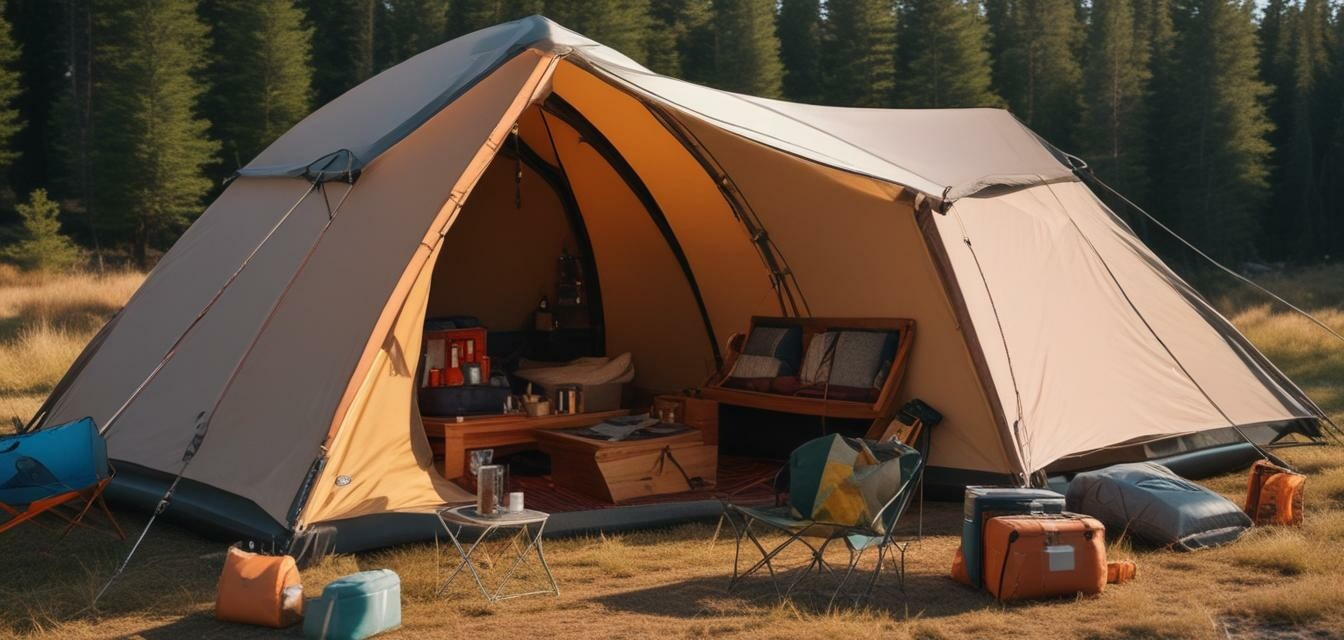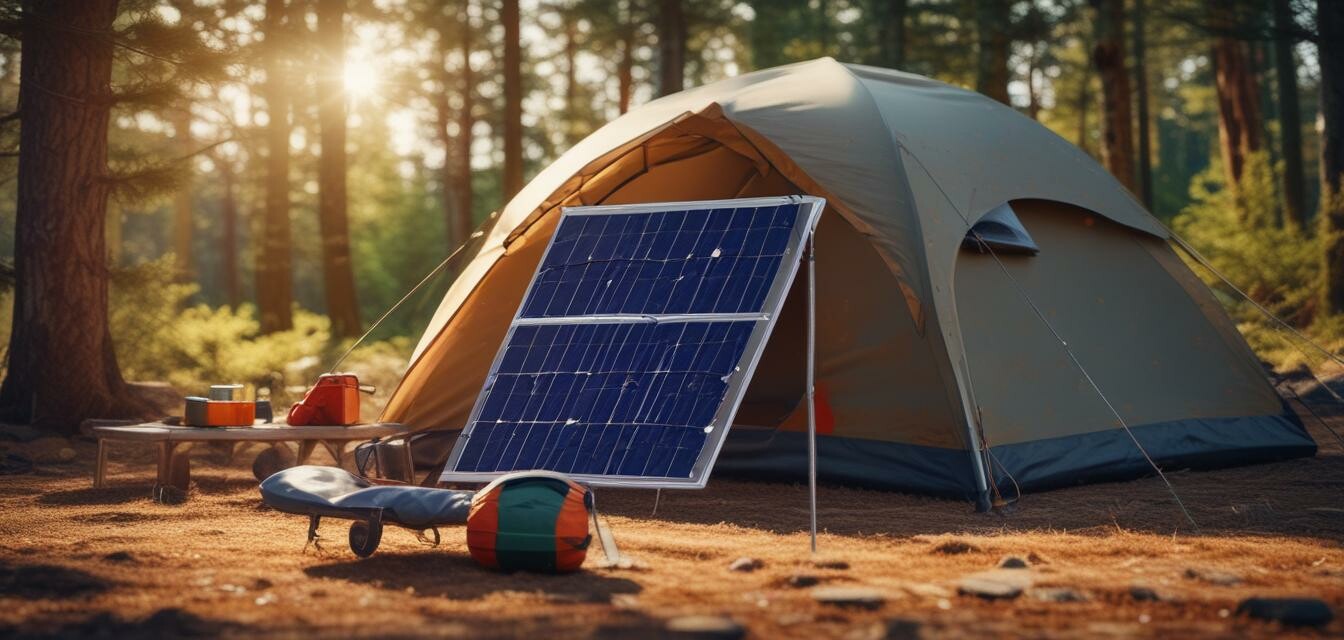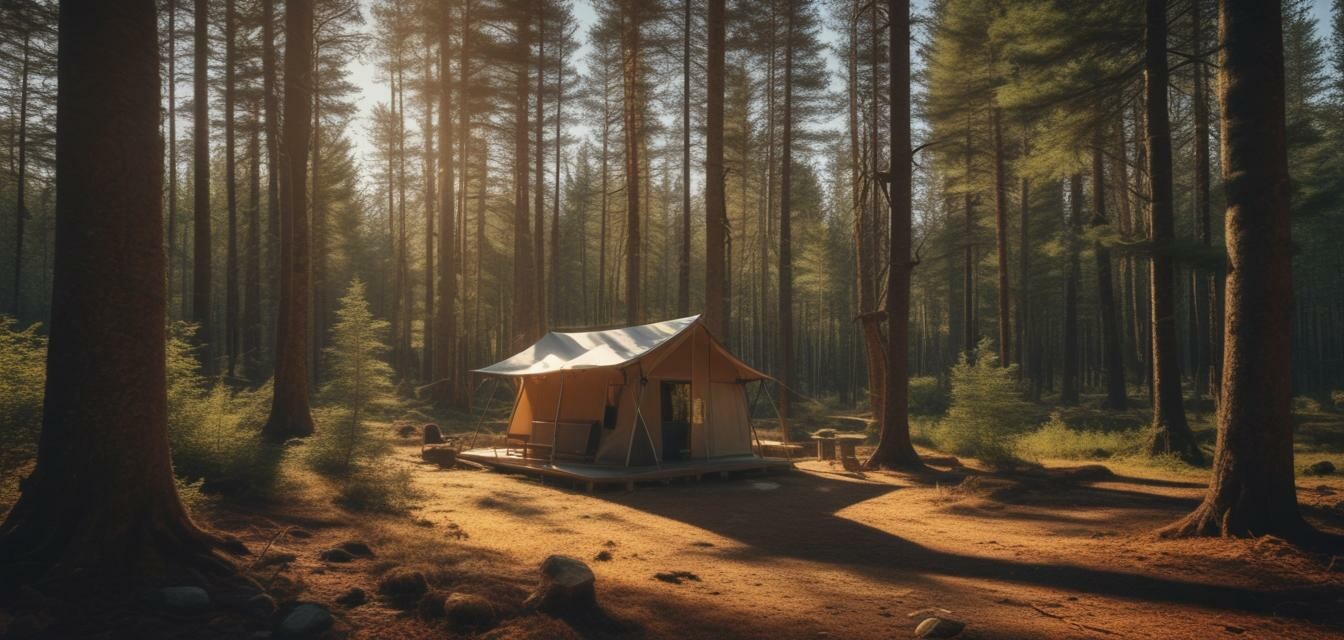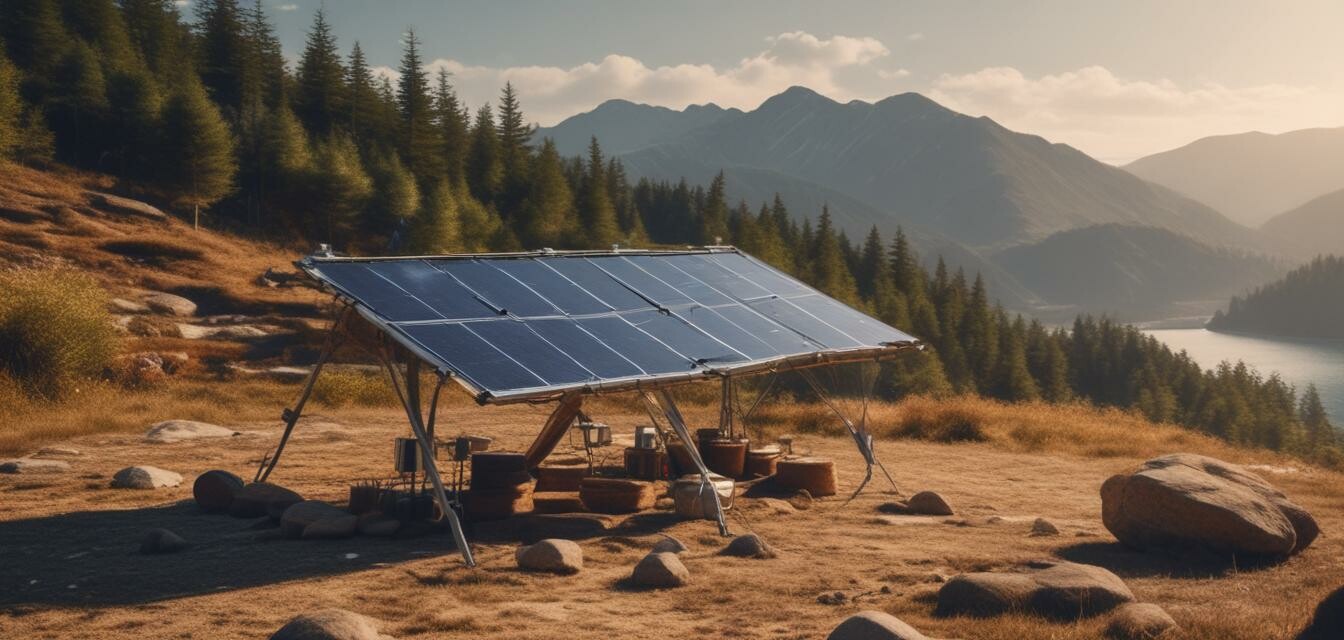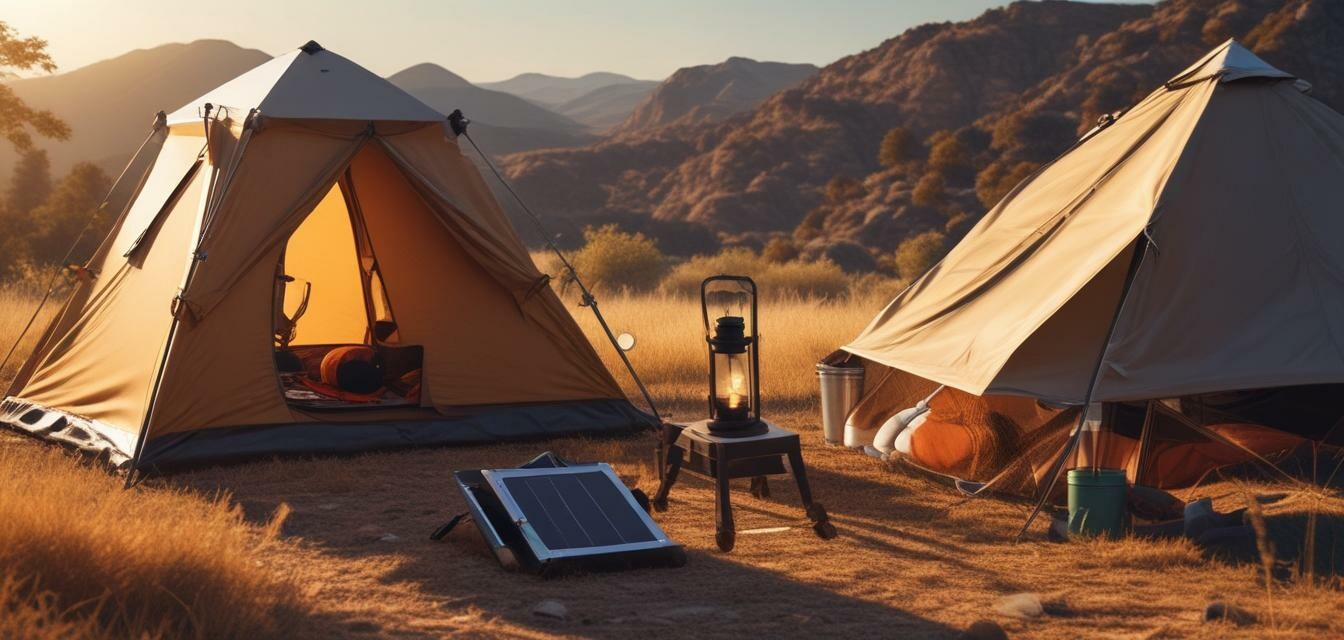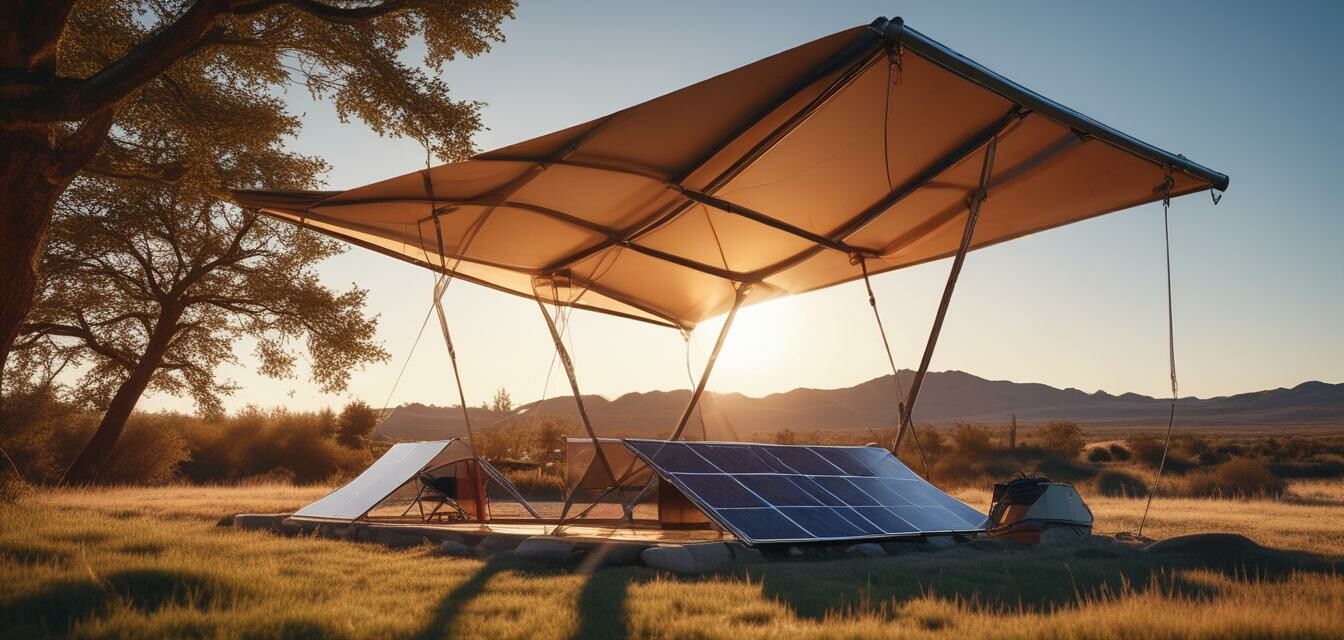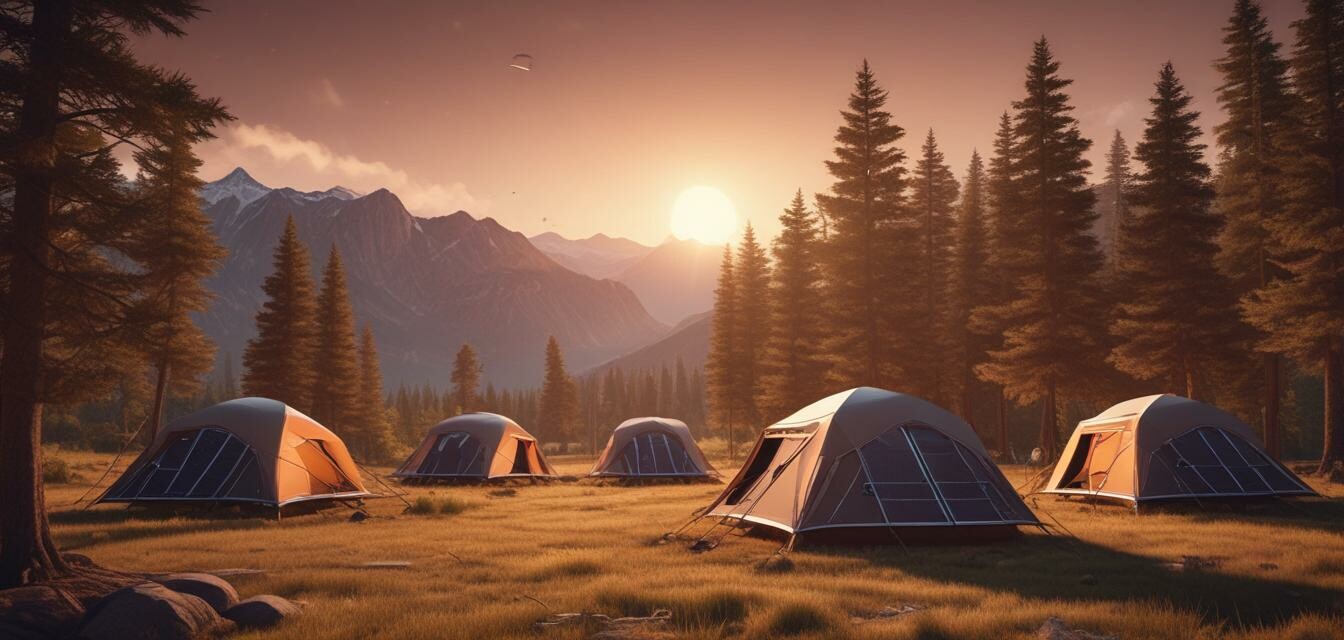
Solar Technology in Camping Shelters
Key Takeaways
- Solar technology in camping shelters enhances convenience and sustainability.
- Features include solar panels, solar cookers, and solar lanterns.
- Real-time energy generation contributes to an improved camping experience.
- These shelters are eco-friendly options for energy-conscious campers.
As camping becomes increasingly popular, the integration of solar technology into camping shelters is transforming how outdoor enthusiasts connect with nature. This article explores the various applications of solar technology in camping shelters, how they work, and the benefits they offer to campers.
Understanding solar technology
Solar technology harnesses the sun's energy through various components. When implemented in camping shelters, this technology can power lights, charge devices, and even provide electricity for cooking equipment. Let’s break down the key components:
- Solar Panels: Convert sunlight into electricity.
- Solar Batteries: Store generated energy for later use.
- Inverters: Convert stored DC energy from the batteries to AC energy for powering devices.
- Solar Appliances: Devices designed to run on solar energy, such as lanterns and cookers.
How solar technology works in camping shelters
Solar technology operates using a straightforward mechanism that revolves around three main stages: energy collection, storage, and usage.
| Stage | Description |
|---|---|
| 1. Energy Collection | Solar panels on the shelter gather sunlight and convert it into electricity. |
| 2. Energy Storage | Excess energy is stored in solar batteries for later use. |
| 3. Energy Usage | Stored energy powers devices or appliances inside the shelter. |
Benefits of using solar technology in camping shelters
Pros
- Eco-friendly and sustainable.
- Convenience of power while in remote areas.
- Cost-effective in the long run due to energy savings.
- Increases overall camping comfort with accessible energy.
Cons
- Initial investment might be higher than traditional camping gear.
- Weather dependency can affect energy collection effectiveness.
- Requires some level of technical understanding for setup.
Applications of solar technology in camping shelters
Solar camping shelters come integrated with various solar technologies, enhancing the camping experience. Some common applications include:
- Solar camping tents that harness sunlight for powering devices.
- Solar cookers and grills that allow for cooking without gas or charcoal.
- Solar lanterns and lights that provide lighting without the need for batteries.
- Portable solar panels for charging multiple devices seamlessly.
Comparing solar camping shelters
| Feature | Solar Camping Tent | Solar Cookers | Solar Lanterns |
|---|---|---|---|
| Energy Source | Solar Panels | Solar Heat | Solar Panels |
| Use | Provide Shelter | Cooking | Lighting |
| Portability | Moderate | High | Very High |
| Maintenance | Low | Low | Very Low |
The future of solar technology in camping
With rapid advancements in battery technology and solar panel efficiency, the future looks bright for solar-powered camping shelters. Innovations such as solar-integrated tents and portable solar generators are on the horizon, and as costs decrease, more campers will switch to solar energy solutions.

Staying prepared while camping with solar technology
Camping with solar technology requires a bit of preparation. Here are some tips to make the most of your camping experience:
Beginner tips
- Research the solar equipment you'll need based on your camping style.
- Check the weather forecast to understand how much solar energy you might collect.
- Familiarize yourself with how to set up and maintain solar equipment.
- Consider how much energy you might need for your trip.
- Keep the solar panels clean for optimal efficiency.
Conclusion
Integrating solar technology into camping shelters allows for a sustainable and convenient outdoor experience. From solar camping tents to portable solar panels, these innovations enable campers to enjoy modern comforts while preserving the beauty of nature. As we look to the future, it's clear that solar technology will play a significant role in shaping the way we explore the great outdoors.
